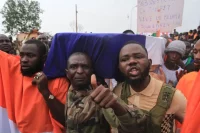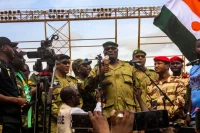Watch List 2023 – Autumn Update
The year 2023 has seen peace and security challenges both far from the EU’s borders and closer to home. The latter, especially, have heightened in recent weeks and months, which have seen fighting in the South Caucasus and Kosovo, even as a second year of war in Ukraine stretches on. While the three crises are very different in nature, all suggest a worrying inclination on the part of some governments to seek solutions to disputes through force of arms. Insofar as this jarring trend involves a proliferation of new wars, large and small, it flies in the face of the decades of energy that the EU has invested in turning the page on past conflagrations in Europe and its neighbourhood.… Seguir leyendo »















